HORMONES AND THEIR REGULATIONS
Hormones are chemical messengers produced by endocrine glands that are released into the bloodstream and are responsible for regulating various functions in the body. These functions include growth and development, metabolism, sexual function, and mood. Hormones are regulated by a feedback system in which the body produces a hormone in response to a specific need, and then shuts off production once that need is met.
There are many hormones in the body, each with its own specific function. Some common hormones include:
Adrenaline:
Produced by the adrenal gland, regulates the body’s fight or flight response
Insulin:
Produced by the pancreas, regulates blood sugar levels
Estrogen:
Produced by the ovaries in women, plays a role in reproductive and sexual development
Testosterone:
Produced by the testes in men, plays a role in reproductive and sexual development
Thyroid hormones:
Produced by the thyroid gland, regulate metabolism
Hormones can be regulated by a variety of factors, including the body’s needs, the presence of other hormones, and certain medications. In some cases, imbalances in hormone levels can lead to health problems, such as diabetes or thyroid disorders. If you have concerns about your hormone levels, it is important to speak with a healthcare professional for proper diagnosis and treatment.
HOW HORMONE SYSTEM TRIGGER??
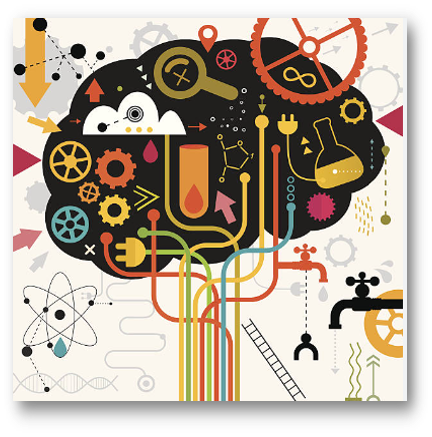
The hormone system is a complex network of glands, hormones, and receptors that work together to regulate various functions in the body, including feelings and emotions. The process by which a stimulus leads to the development of feelings or emotions involves several steps:
Sensory input:
A stimulus, such as sight, sound, or smell, is detected by the body’s senses.
Neural processing:
The stimulus is then processed by the brain, which interprets the stimulus and assigns a meaning to it.
Hormonal response:
Depending on the nature of the stimulus and its interpretation by the brain, the hormone system is activated. Hormones are released from the endocrine glands into the bloodstream, where they travel to their target cells to affect various bodily functions.
Behavioral and emotional response:
The hormonal response can trigger a behavioral and emotional response in the individual, such as feeling love, fear or anger, joy or disgust.
For example, when a person sees someone they find attractive, the hypothalamus, a small region in the brain, sends signals to release hormones such as dopamine and oxytocin. These hormones are associated with pleasure and reward, which can lead to feelings of attraction and interest toward the person. Similarly, when a person feels threatened, the hypothalamus sends signals to the pituitary gland to release the hormone ACTH. ACTH then sends a signal to the adrenal gland to release adrenaline and cortisol, which can cause a fight or flight response and make the person feel fear or anger.
It is worth mentioning that the hormone system is complex and the release of hormones can be influenced by many different factors such as internal physiology, genetics, past experiences, or environmental situations.
HORMONAL IMBALANCING!!
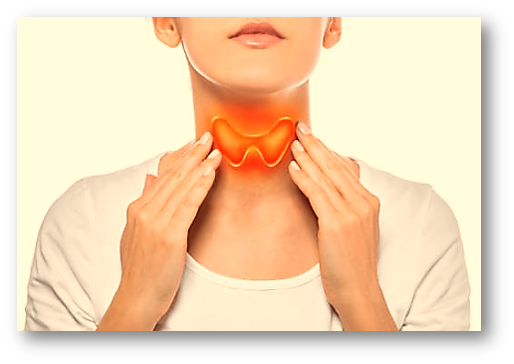
Hormonal imbalances occur when there is too much or too little of a certain hormone in the body. These imbalances can occur for a variety of reasons, including changes in the body’s needs, changes in the endocrine glands that produce the hormones, or changes in the brain’s regulatory systems. Hormonal imbalances can lead to a wide range of symptoms, depending on the specific hormone that is affected.
Some common causes of hormonal imbalances include:
Thyroid disorders:
The thyroid gland produces hormones that regulate metabolism, and imbalances in thyroid hormones can lead to symptoms such as fatigue, weight gain, or weight loss.
Diabetes:
The pancreas produces insulin, a hormone that regulates blood sugar levels, and imbalances in insulin can lead to symptoms such as excessive thirst or hunger, fatigue, or blurred vision.
Menopause:
The ovaries produce estrogen and progesterone, and the decline of these hormones during menopause can lead to symptoms such as hot flashes, night sweats, and vaginal dryness.
Adrenal disorders:
The adrenal gland produces hormones such as cortisol and adrenaline, and imbalances in these hormones can lead to symptoms such as fatigue, anxiety, or weight gain.
It is important to note that these are just a few examples of hormonal imbalances there are many other hormones that are involved in different bodily functions, and imbalances in them can lead to many health issues. If you suspect that you may have a hormonal imbalance, it is important to speak with a healthcare professional for proper diagnosis and treatment. They may perform some tests such as blood tests to measure hormone levels and other assessments to come to a diagnosis.
Treatment options for hormonal imbalances can vary depending on the specific hormone that is affected, the underlying cause of the imbalance, and the severity of the symptoms. The treatment may include medication, hormone replacement therapy, lifestyle changes such as diet, exercise, and stress management, and some other complementary therapies.
CAUSES OF IRREGULAR HORMONAL REGULATIONS!!
Hormonal imbalances can be caused by a number of factors, including changes in the body’s needs, changes in the endocrine glands that produce the hormones, or changes in the brain’s regulatory systems. Some common causes of the irregular hormonal release include:
Genetics:
Certain genetic conditions, such as Turner syndrome or congenital adrenal hyperplasia, can lead to irregular hormonal release.
Environmental factors:
Exposure to toxins, such as pesticides and heavy metals, can disrupt the endocrine system and lead to irregular hormonal release.
Illness or injury:
Certain illnesses, such as diabetes and thyroid disorders, and injuries to the endocrine glands can lead to irregular hormonal release.
Medications:
Certain medications, such as birth control pills and steroids, can disrupt the balance of hormones in the body.
Stress:
Stress can cause the release of hormones such as cortisol which can cause changes in other hormones released.
EFFECTS OF HORMONAL IMBALANCING!!
The irregular hormonal release can have a wide range of effects on the body, depending on the specific hormone that is affected. Some common effects include:
Changes in metabolism:
Hormones that regulate metabolism, such as insulin and thyroid hormones, play a critical role in maintaining healthy weight and energy levels. The irregular hormonal release can lead to weight gain or weight loss, fatigue, or difficulty maintaining healthy blood sugar levels.
Reproductive disorders:
Hormones that regulate the menstrual cycle and fertility, such as estrogen and progesterone, play a critical role in reproductive health. The irregular hormonal release can lead to conditions such as polycystic ovary syndrome (PCOS) or irregular periods.
Mood changes:
Hormones that regulate mood, such as serotonin and dopamine, play a critical role in mental health. The irregular hormonal release can lead to conditions such as depression or anxiety.
Changes in physical appearance:
Hormones that regulate growth and development, such as growth hormone and testosterone, play a critical role in physical appearance. The irregular hormonal release can lead to conditions such as stunted growth or abnormal muscle development.
It is important to note that these are just a few examples of the effects of irregular hormonal release. If you are experiencing symptoms that you believe may be caused by an irregular hormonal release, it is important to speak with a healthcare professional for proper evaluation and treatment.
HORMONES AND FEELINGS!!
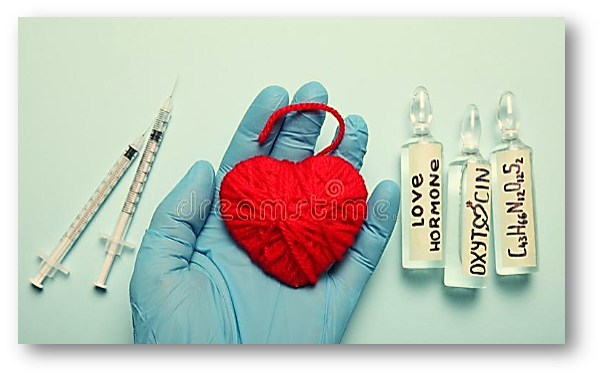
Hormones can affect feelings and emotions in a number of ways. For example, the hormone cortisol, which is produced by the adrenal gland in response to stress, can cause feelings of anxiety and tension. The hormone oxytocin, which is produced in the brain and helps regulate social bonding and attachment, has been linked to feelings of love and affection.
Other hormones that can affect feelings and emotions include:
Serotonin:
A neurotransmitter that helps regulate mood and can affect feelings of happiness and well-being
Dopamine:
A neurotransmitter that plays a role in pleasure and reward and can affect feelings of motivation and pleasure
Estrogen and testosterone:
Hormones that can affect mood and behavior, particularly in women during menopause or in men with low testosterone levels
It’s important to note that hormones are just one factor that can affect feelings and emotions. Other factors, such as genetics, life experiences, and environmental factors, can also play a role. If you are experiencing persistent feelings of sadness or other negative emotions, it is important to speak with a healthcare professional for proper evaluation and treatment.
WHICH IS YOUR HAPPY HORMONE??
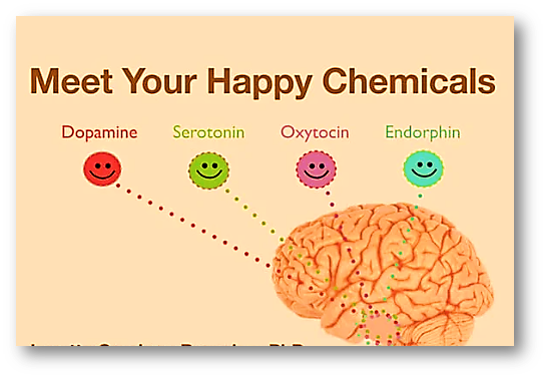
The “happy hormone” is often referred to as serotonin, which is a neurotransmitter produced by the brain. Serotonin is involved in a number of functions in the body, including mood regulation. Low levels of serotonin have been linked to feelings of sadness and depression, while higher levels are associated with feelings of well-being and happiness.
Serotonin is produced in the brain and plays a role in the regulation of mood, appetite, and sleep. It is often referred to as the “feel-good hormone” because of its role in influencing positive mood and feelings of well-being. Serotonin levels can be affected by a variety of factors, including diet, exercise, and exposure to sunlight.
It’s important to note that serotonin is just one factor that can affect mood and feelings of well-being. Other neurotransmitters, such as dopamine and norepinephrine, can also play a role in regulating mood. If you are experiencing persistent feelings of sadness or other negative emotions, it is important to speak with a healthcare professional for proper evaluation and treatment.
WHICH IS YOUR SAD HORMONE??
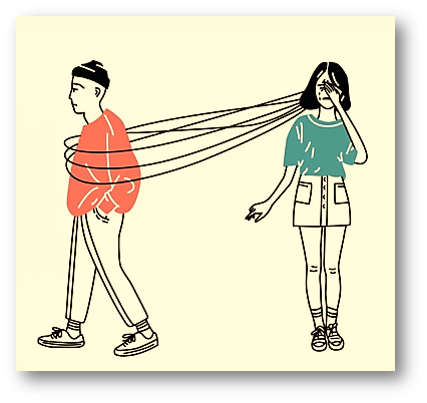
There is no specific “sad hormone” that has been identified. Rather, imbalances in several different hormones and neurotransmitters have been linked to feelings of sadness and depression. Some of the hormones and neurotransmitters that may play a role in the development of depression include:
Serotonin:
A neurotransmitter that helps regulate mood and can be disrupted in individuals with depression
Cortisol:
A hormone produced by the adrenal gland in response to stress, high levels of which have been linked to feelings of anxiety and depression
Dopamine:
A neurotransmitter that plays a role in pleasure and reward, low levels of which have been linked to feelings of sadness and low motivation
Norepinephrine:
A neurotransmitter that helps regulate mood and can be disrupted in individuals with depression
It’s important to note that hormones and neurotransmitters are just one factor that can contribute to feelings of sadness and depression. Other factors, such as genetics, life experiences, and environmental factors, can also play a role. If you are experiencing persistent feelings of sadness or other negative emotions, it is important to speak with a healthcare professional for proper evaluation and treatment.
STRESS AND ANXIETY HORMONES!!
Stress is a normal physiological response to a perceived threat or challenge. When the body experiences stress, it releases a number of hormones, including adrenaline and cortisol, to help prepare for a “fight or flight” response. These hormones help to increase heart rate, blood pressure, and glucose levels, as well as to sharpen attention, focus, and memory. This response, however, can cause physical and emotional stress symptoms that can be distressing and even harmful if activated frequently or left unmanaged.
Cortisol is a steroid hormone produced by the adrenal glands, which are located on top of the kidneys. Cortisol’s release is triggered by the hypothalamus. Which sends a signal to the pituitary gland to release ACTH (Adrenocorticotropic Hormone) and then ACTH sends the signal to the adrenals to release cortisol. Cortisol increases glucose levels in the bloodstream. That enhances the brain’s use of glucose, and helps suppress the immune system, among other functions.
Anxiety is a normal human emotion that is characterized by feelings of worry, nervousness, and unease. However, when anxiety becomes excessive or persistent, it can become a disorder. There are several hormones that are associated with anxiety. Some of them are:
Adrenaline and noradrenaline:
These hormones, also known as catecholamines, are released by the adrenal glands in response to stress and can lead to feelings of anxiety and nervousness.
Cortisol:
High levels of cortisol in the bloodstream have been linked to feelings of anxiety, tension, and irritability.
Gamma-aminobutyric acid (GABA):
GABA is a neurotransmitter that helps regulate nervous system activity. Low levels of GABA have been linked to anxiety and panic disorders.
It is important to note that, while hormones play a role in anxiety, the causes of anxiety disorders are complex and can also be influenced by other factors such as genetics, past experiences, and environment. If you are experiencing persistent feelings of anxiety or worry, it is important to speak with a healthcare professional for proper evaluation and treatment. They can recommend different therapies such as cognitive behavioral therapy or pharmacological treatment if needed.
CAN HORMONES MAKES YOU FALL IN LOVE OR HATE??
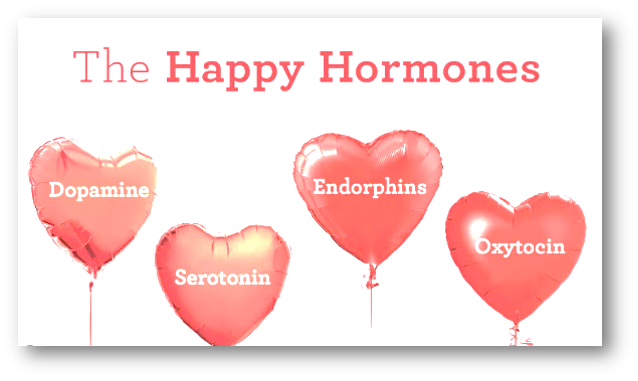
Hormones can affect mood and behavior, including feelings of love and attachment. However, it’s important to note that hormones are just one factor that can influence these emotions. Other factors, such as genetics, life experiences, and environmental factors. They also play a role in the development of emotions such as love and hate.
That being said, certain hormones have been linked to feelings of love and attachment. For example, the hormone oxytocin, which is produced in the brain, has been associated with social bonding and attachment. Oxytocin is often referred to as the “love hormone” because of its role in influencing positive social behaviors and feelings of love and attachment.
On the other hand, high levels of the hormone cortisol. Which is produced in response to stress, have been linked to feelings of anxiety and aggression. High levels of cortisol can disrupt the balance of other hormones and neurotransmitters in the body. Which may contribute to negative emotions such as anger and hate.
It’s important to note that the role of hormones in emotions is complex and not fully understood. If you are experiencing strong feelings of love or hate that are causing problems in your life. It is important to speak with a healthcare professional for proper evaluation and treatment.

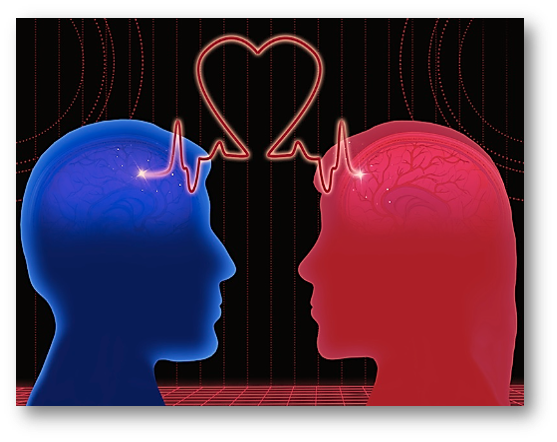
Pingback: MEMORIZATION-UNLOCK THE SECRETS!! - Life Biologs
Pingback: REFLEXES - FASTER THAN YOUR THOUGHTS!! - Life Biologs